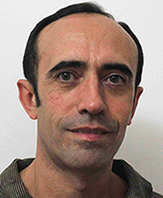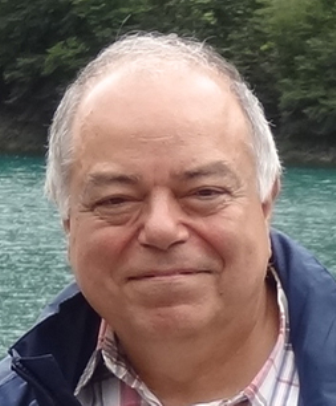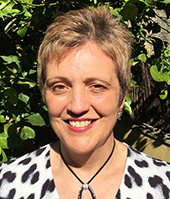Invited Speakers
Ángel Velázquez Iturbide - Presentation: “Constructivism and educational software in the learning of algorithms”
António Bartolomé - Presentation: “Blockchain in Education and Adaptive learning”
Ana Amélia Carvalho - Presentation: “Apps and Digital Games: promoting students’ engagement, responsibility, and creativity”
 |
Ángel Velázquez Iturbide - November 21stHas a degree in Computer Science from the Polytechnic University of Madrid in 1985 and haas a PhD in Computer Science from the same university in 1990. He has been a professor at the Polytechnic University of Madrid until 1997 and at the present is a professor at Rey Juan Carlos University. He is the Director of the research group "Laboratory of Information Technologies for Education"(LITE, http://www.lite.etsii.urjc.es/). |
|
Presentation Summary: Ángel Velázquez Iturbide - “Constructivism and educational software in the learning of algorithms” Constructivism is an educational theory that claims that knowledge is not just directly transmitted from teachers to students, but that the student must actually build it. This simple approach has many didactic implications; some of them will be addressed in the lecture for the topic of algorithms. Algorithms are a core subject matter in computing curricula, which is related to programming, but with less emphasis on programming language issues and with more emphasis on problem solving and analysis of the solutions. The role that educational software may play in this subfield of computing education will also be addressed. The lecture will be illustrated with examples extracted from the lecturer’s research experience, especially in relation to recursion and optimization algorithms. |
 |
Antonio R. Bartolomé - November 22ndPh. D. by the University of Barcelona, specialist in Educational Technology, he has worked from 1988 in Multimedia design and development, firstly with Laserdisc based systems, later CD-ROM and Web, and lately with Video digital solutions. His current work in Educational field is centred in adaptive learning managed with blockchains.He is author of more than 30 books and 160 articles. He has participated with papers or as invited speaker at around 250 events from 1983.He has also coordinated European projects from 1990, as well as other national and local research works.At this moment AB is Director of Institute of Research in Education and senior professor at the Universitat de Barcelona.http://www.lmi.ub.edu/personal/bartolome |
|
Presentation Summary: Antonio R. Bartolomé - “Blockchain in Education and Adaptive learning” Blockchain has been used in Education as a technology for the certification of competencies or knowledge. But other consequences are not imaginable. So, it is being applied to generate a new proposal of adaptive learning, well based on the offer of a curriculum a la carte or individual learning paths with an own menu of activities. This conference will explain what Blockchain is, how to apply to Education and some experience of BC-based adaptive learning. |
 |
Ana Amélia Carvalho - November 23rdFull Professor at Psychology Faculty and Educational Sciences of Coimbra University. She is the Coordinator of Technological Educational Laboratory(LabTE) in FPCE of Coimbra University. Has been the Coordinator of several investigation projects financed by Portuguese Foundation for Science and Tecnology concerning the use of digital technologies in teaching context, development of serious games and other pedagogical approaches, specially in active methologies. She has several articles in important publications as weel as in national and international books, participating with communications in national and international conferences. |
|
Presentation Summary: Ana Amélia Carvalho - “Apps and Digital Games: promoting students’ engagement, responsibility, and creativity” Students are used to be connected all the time to their friends and to the Web. Most of them have a low capacity of attention, and, sometimes, is hard to motivate them to learn. Using their mobile devices to engage them in classroom activities is something that they accept quite well. Group work should be challenging, promoting students’ engagement, responsibility, and creativity. During this talk, some cases and examples that aim to achieve those results will be presented and discussed. |
